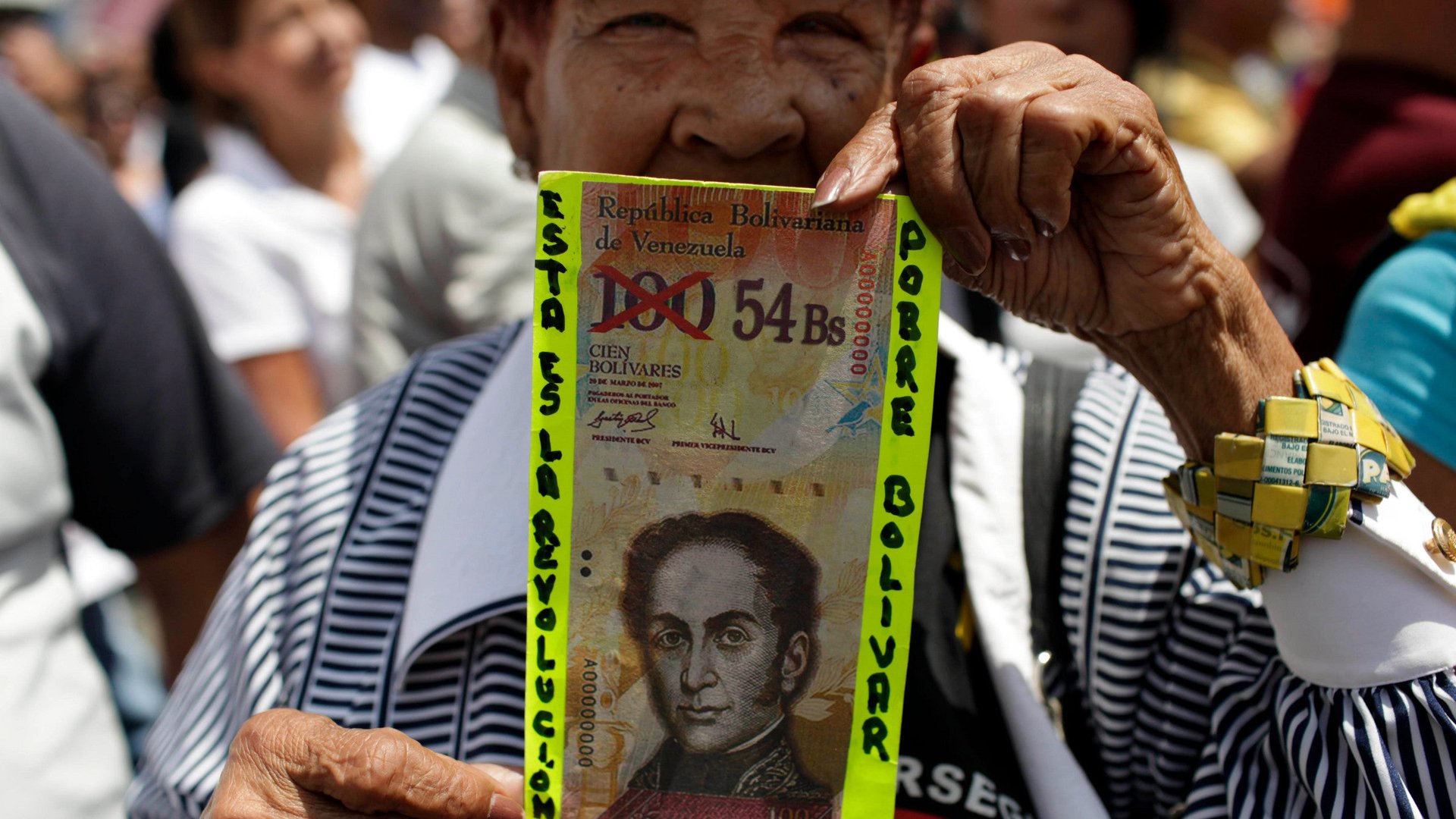In his final act, Hugo Chávez managed to stick it global corporations
The late Hugo Chávez would surely have been pleased to know that one of his last acts as Venezuela’s president is now hitting multinational corporations where it hurts—in the bottom line.


The late Hugo Chávez would surely have been pleased to know that one of his last acts as Venezuela’s president is now hitting multinational corporations where it hurts—in the bottom line.
With this week’s (contested) election of Nicolás Maduro, Chávez’s chosen successor, to the presidency, prospects for the country’s economy are a bit bleak—and so are those for the big multinationals that sell its citizens food, soda, deodorant, make-up and booze.
Maduro has pledged to continue Chávez’s economic policies, which have depended on the value of the country’s oil exports and nationalization of key industries. But the country suffers from big budget deficits, has high inflation despite a regime of price controls, and is disproportionately reliant on imports for many consumer goods.
In February, from his sickbed, Chávez—assuming you are not one of those conspiracy theorists who think he was already dead by then—devalued the currency by nearly a third. Making the bolivar cheaper means the government makes more money from oil sales abroad, and also makes imported goods more expensive, giving domestic companies an advantage.
That was a problem for multinationals. Not only did it make their products pricier overnight, but any Venezuelan assets and cash their local subsidiaries held instantly lost value. This week, we got a picture of that as Coca-Cola, Pepsi and Johnson & Johnson announced their earnings. This morning, Pepsi reported $111 million write-down on its assets as a result of the currency adjustment. On a net income of $1.1 billion, that’s a fairly significant hit. On Tuesday, Johnson & Johnson reported losing $100 million, which reduced earnings per share by $0.04, and Coca-Cola wrote off $149 million.
That should lead us to expect similar write-offs from Unilever, Colgate-Palmolive, and Procter and Gamble, three major global consumer-goods makers with Venezuelan exposures, when they announce their first quarter earnings next week.
Other companies with a big presence in Venezuela have warned of problems in advance of earnings announcements scheduled later. Clorox, a maker of household cleaners, expects lose $0.05 to $0.10 in earnings per share due to the loss, and cosmetics maker Avon is preparing to write down some $50 million.
The question is whether Venezuela’s domestic industry will be able to pick up the pace and replace the more expensive imports. This is harder than it seems: Food shortages wrack the country, but farmers are unable to up production without herbicides and other agricultural products—which are generally imported from abroad.